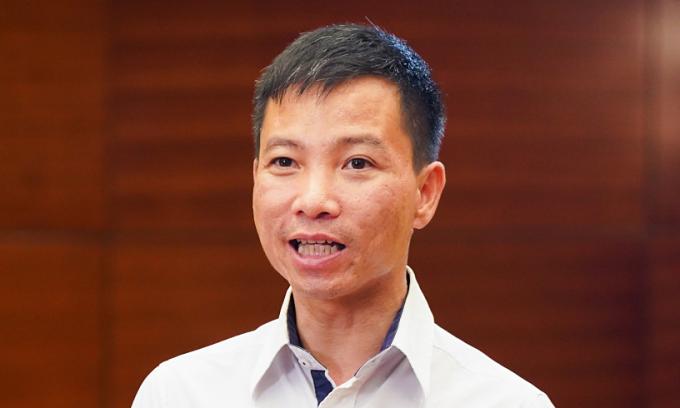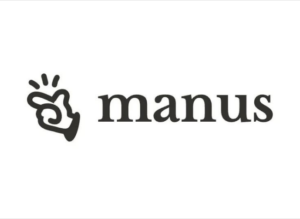AI Innovator Le Viet Quoc Emphasizes Vietnam’s Need for Innovation Over Imitation

Insights from AI Pioneer Le Viet Quoc
Background of Le Viet Quoc
Le Viet Quoc, 43, has established himself as a leading figure in the field of artificial intelligence (AI). He earned his PhD in computer science from Stanford University in the United States and was hailed by the MIT Technology Review as one of the world’s top innovators under the age of 35. His significant contributions at Google Brain, now integrated with Google DeepMind, have placed him on the global stage as an esteemed expert in AI.
During a visit to Vietnam for the 2025 International Conference on AI and Semiconductors from March 12 to 16, Quoc discussed Vietnam’s position in AI and shared his thoughts on the challenges and opportunities ahead for the country.
U.S.-China AI Competition
Current State of Affairs
The competition between the U.S. and China in AI is intensifying. In recent years, China has made remarkable strides with innovations like DeepSeek. Before this model, estimates suggested that China lagged behind the U.S. by approximately two years in terms of talent and chip technology. However, with DeepSeek emerging onto the scene, that gap is estimated to have shrunk to just six months.
While some speculate that DeepSeek may have drawn inspiration from U.S. models like those from OpenAI or Google, confirming this connection is challenging due to a lack of verified information. If true, the disparity in advancement could still be notable.
Lessons for Vietnam from DeepSeek
Investment in AI Development
DeepSeek garnered considerable attention by developing its AI models with an initial investment of just $5 million, although total expenditures likely exceed $1 billion. Similar investments are being made by some Vietnamese companies in their AI initiatives.
Quoc emphasizes the importance of open-source AI development as a strategic focus for Vietnam. Many organizations can enhance their AI projects by utilizing open-source models, which enable quicker development by leveraging existing technologies. For instance, in sectors like healthcare and education, established models such as DeepSeek, Llama, or Gemma could be valuable resources.
Moreover, Quoc encourages local researchers and institutions to not only utilize open-source solutions but also contribute to them. Making Vietnamese-developed models universally available could elevate Vietnam’s profile in the global AI community and attract skilled talent.
Strategies for Local AI Projects
Tapping into Advantages of Being a Latecomer
Entering the AI race later has its perks, according to Quoc. Latecomers can adopt strategies from earlier participants while avoiding pitfalls. For example, major AI models like Gemini and ChatGPT require immense computing resources to sustain, which can divert efforts from improving technology. New entrants can focus more on refining their models without the burden of legacy systems.
As the costs of AI development decrease, Vietnam has a realistic chance to create its own AI solutions. Quoc advises that rather than rushing to catch up, Vietnam should concentrate on innovations tailored to its strengths. By addressing the weaknesses of existing models, Vietnam can carve out a niche and potentially surpass regional competitors.
Fostering AI Talent in Vietnam
Nurturing the Next Generation of Innovators
Developing talent is critical for the future of AI. Though Vietnam has a robust foundation in STEM education, improvements in higher education and research infrastructure are essential. Global expertise and innovative teaching must be prioritized to cultivate top-notch AI professionals within the country.
There is a growing concern that talented individuals often seek education and career opportunities abroad, making it challenging to bring them back. To combat this, investment in local universities should include inviting renowned international academics and creating environments conducive to groundbreaking research.
Furthermore, establishing a thriving startup ecosystem and enticing global tech players to set up R&D offices in Vietnam can further enhance local talent exposure and opportunities.
Vietnam’s Innovative Policies
Government Support for AI and Digital Transformation
Vietnam is making strides in supporting science, technology, and innovation through new policies. Quoc recognizes the government’s commitment to AI as encouraging but stresses that substantial results will take time. With focused investments in education and a long-term strategy, Vietnam has the potential to advance significantly in AI development.
The Future of AI
The Shift Towards AI Agents
Quoc predicts that the future of AI will move towards the development of AI agents, which will operate as sophisticated assistants capable of interacting with real-world environments. As the industry shifts from chatbots to more interactive and capable AI agents, companies are already investing in this new direction. However, the major challenge remains the need for real-world interaction data, which is currently limited.
Through continuous advancements and breakthroughs, particularly in AI agent technology, the future landscape of AI holds promise for practical applications that can significantly improve various aspects of life and work.






